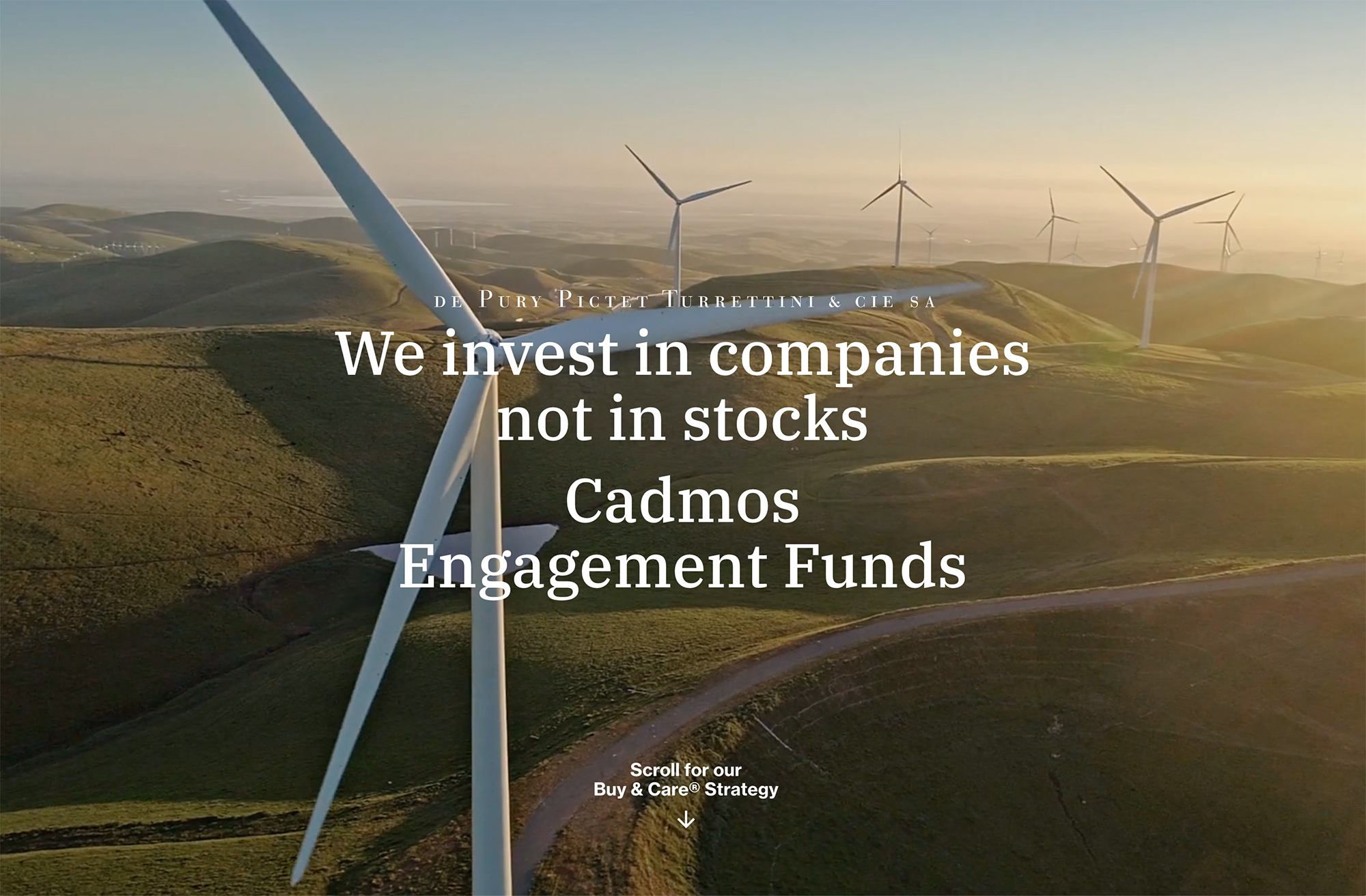PPT’s 2021 Impact and Financial report showcases the power of engagement – The case of BKW
For the 12th consecutive year, PPT publishes a Financial & Impact Report on the performance of its Buy & Care investment strategy.
Highly regarded in the industry, the quality and transparency of these reports have been lauded by key sustainable finance organisations. Moreover, the Cadmos Peace Investment Fund was shortlisted in the PRI’s first ever “Active Ownership” award.
Financial, voting, and engagement performance are individually and transparently laid in a similar format with historical performances, key statistics and stories. Since 2019, the report can be easily consulted and accessed via our interactive dedicated website.
PPT always believed that a direct engagement strategy with clear gaps and recommendations to companies is core to any sustainable finance investment strategy in listed equities. Engagement successes, even modest, are tangible to us as they are signs of willingness of companies to progress and listen to external stakeholders. They also allow to strengthen our investment convictions in particular for companies who are transitioning. This is for instance the case for BKW which just published its first sustainability report a few months ago. We have been pushing for this move since 2017 when we invested in BKW for the Cadmos Swiss Engagement Fund. We know the company quite well since it is a historic and strong position within our Enetia Energy Infrastructure Fund as well.
Interestingly, BKW is still excluded from some sustainability and ethical funds as the company indirectly (through ownership) produces a small proportion of energy from nuclear and coal (less 5%). BKW invests massively in renewable energy while capital expenditures in nuclear and coal are diminishing (except the dismantling of BKW). We believe that in all but a few exceptional cases, active ownership and dialogue is preferable to exclusion. This was clearly the case when we decided to invest in and held an engagement meeting every year ever since.
BKW Energie is the third largest vertically integrated utility player in Switzerland, progressively evolving into a leading provider of energy and infrastructure services. In contrast to major Swiss utility peers, BKW has sufficient internally generated funds to define a strategy, as opposed to purely reacting via cost and efficiency improvements and asset sales. Potential subsidization of hydropower in Switzerland will be a major opportunity for BKW going forward.
Our objective with is to help companies progress and better communicate the underlying improvements. We ambition to positively influence the companies and create a tangible impact. Our success is ultimately also measured by the companies’ performances or by better ESG ratings even though we do not rely on them. We prefer to focus on clear commitments than on sometimes misleading or false information. This is particularly true unfortunately for smaller or innovative companies like BKW. Nevertheless, BKW’s poor ratings, was a cause of concern as many Fund managers today do rely on them. These ratings also tend to be backward looking and focusing on company reports only.
During the first 3 years, the engagement efforts resulted among others into a more extensive and meaningful sustainability reporting and an English website with a subsite on its sustainability approach and management addressing supply chain, operations and product & services related aspects.
We noticed that the company made considerable progress in 2020 to better showcase its energy transition strategy. BKW launched a first green bond to help finance that transition after it showed tangible and pioneering action in 2019, by becoming the first Swiss company to take a nuclear power plant off the grid in Mühleberg.
In 2020, BKW applied our recommendation regarding the share of information related to its sustainability commitment, management and measures including relevant policy and position papers in English on its website. In addition, the company representatives announced that an intensive discussion has been kicked-off involving the executive board aimed at defining BKW’s sustainability strategy including disclosure ambitions.
During the meeting in 2021, the engagement team acknowledged some recent developments and inquired about ongoing activities that are announced in the company’s reports. BKW also announced that the company was finally developing its first sustainability report for 2021.
We made it clear that the upcoming SFDR and taxonomy regulation will continue to put pressure on shareholders like ourselves to hold BKW shares. We recommended to further progress on the transparency and to comply with the taxonomy regulation. In this context, we hence also suggested BKW to sell their remaining assets in Electrabel’s coal-fired power plant in Germany.
It is important to highlight that BKW is not only about environmental issues. The Company commits to health and safety of employees and has a company health management system in place. BKW participates in the “Working Group Sustainable Supply Chains” where topics of sustainability-related risk analysis in the supply chain are discussed.
As a mainstream and patient investor without a political agenda, we do set an important signal to companies. Boards tend to hear us when we formulate clear recommendations which are supporting companies to progress and better integrating financially material sustainability topics into their business model.
In the 2021 Financial & Impact Reports, you will find other similar stories along global statistics on all the companies who through the years have implemented some of our early recommendations. This year again, all our funds surpassed our key engagement objective – 50% of the engaged portfolio companies show tangible improvements on our recommendations within 5 years.
